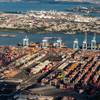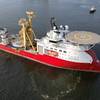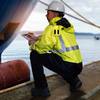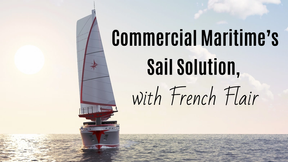Falling oil prices, heightened geopolitical tensions and sluggish, uncertain growth in the global economy are directly impacting the maritime industry, causing Norwegian shipowners to be less optimistic than last year regarding both turnover and profitability, as the Norwegian Shipowners’ Association Outlook report for 2015 shows.
“We have seen a marked negative shift in just a short time. 2015 will be a challenging year for Norwegian maritime companies, but we must be prepared for 2016 to be even more challenging,” stated Sturla Henriksen, CEO of the Norwegian Shipowners’ Association.
Shipowners are far less optimistic than last year, anticipating growth in turnover of only 2.3 percent in 2015, up to NOK 268 billion, compared to 6 percent anticipated growth last year. All segments except offshore service expect to see some growth in turnover in 2015.
The offshore segment shows the clearest shift. Offshore service shipowners expect a drop in turnover of 4.2 percent in 2015. “This would mark the first drop in turnover since 2002 for this segment,” Henriksen said. “Growth in turnover for offshore service shipowners was 9.9 percent in 2014, so the negative development is significant.”
The picture for traditional shipping is not as bleak. Deep sea shipowners foresee an increase in turnover of 5.1 percent in 2015, compared to actual growth of 3.2 percent in 2014. Short sea shipowners have seen moderate but stable annual growth, and anticipate turnover to rise by 2.5 percent in 2015. Actual growth for this segment was more than 5.5 percent in 2014.
Rig owners expect growth in turnover of 9.1 percent in 2015. This is an ambitious figure given that investment on the Norwegian Continental Shelf is expected to fall by approximately 10 percent in 2015. Many contracts will be fulfilled during the course of the year. For 2014, offshore contractors experienced growth of 2.2 percent.
Shipowners are less optimistic regarding their profitability in 2015 than they were in 2014. In all 35 percent of shipowners expect improved operating results on the year, compared to 72 percent in 2014. 42 percent of shipowners anticipate weakened operating results in 2015, a dramatic increase from only 8 percent last year.
Shipowners are also more pessimistic regarding access to capital. In 2014, around half of shipowners reported that access to capital was good or very good, while today only one out of four report the same.
Heading into 2015, Norwegian Shipowners’ Association members had 26 vessels in storage, of which 20 were ships and six were mobile offshore units. “Our members expect the number of vessels in storage to rise, to 42 by the end of 2015 – 29 ships and 13 rigs,” Henriksen reports.
This trend will also affect the labor market and access to relevant competence. The Outlook survey reveals that one of four Norwegian shipowners plan to reduce the number of Norwegian seafarers on their vessels in 2015.
Henriksen emphasized the shared responsibility of the industry and the government in seeking solutions, and called for productive dialogue in the times ahead.
“The industry itself is doing all it can to survive in these challenging times, and we are encouraged by the signals sent out by the government before Easter indicating changes in the rules governing paid leave. We also have high expectations for the new maritime strategy, which the government has said will be released during the spring. We consider four items to be of particular interest in the strategy: a competitive shipowning tax; strengthening the Norwegian flag by relaxing Norwegian cabotage rules; a strong net wage scheme to encourage employment of more Norwegian seafarers; and improved terms of private ownership. One thing we know: Proactive policies yield good results, even in challenging times,” Henriksen concluded.













